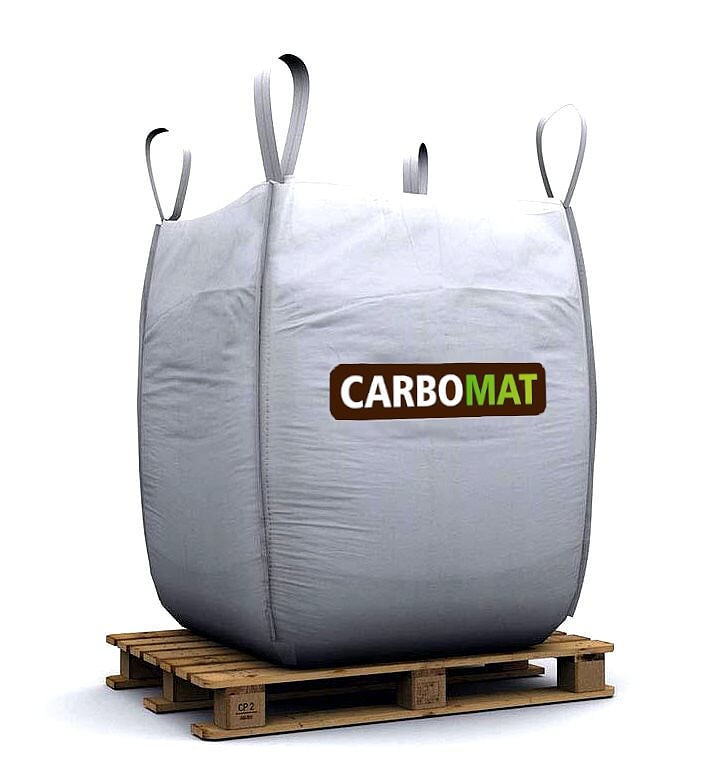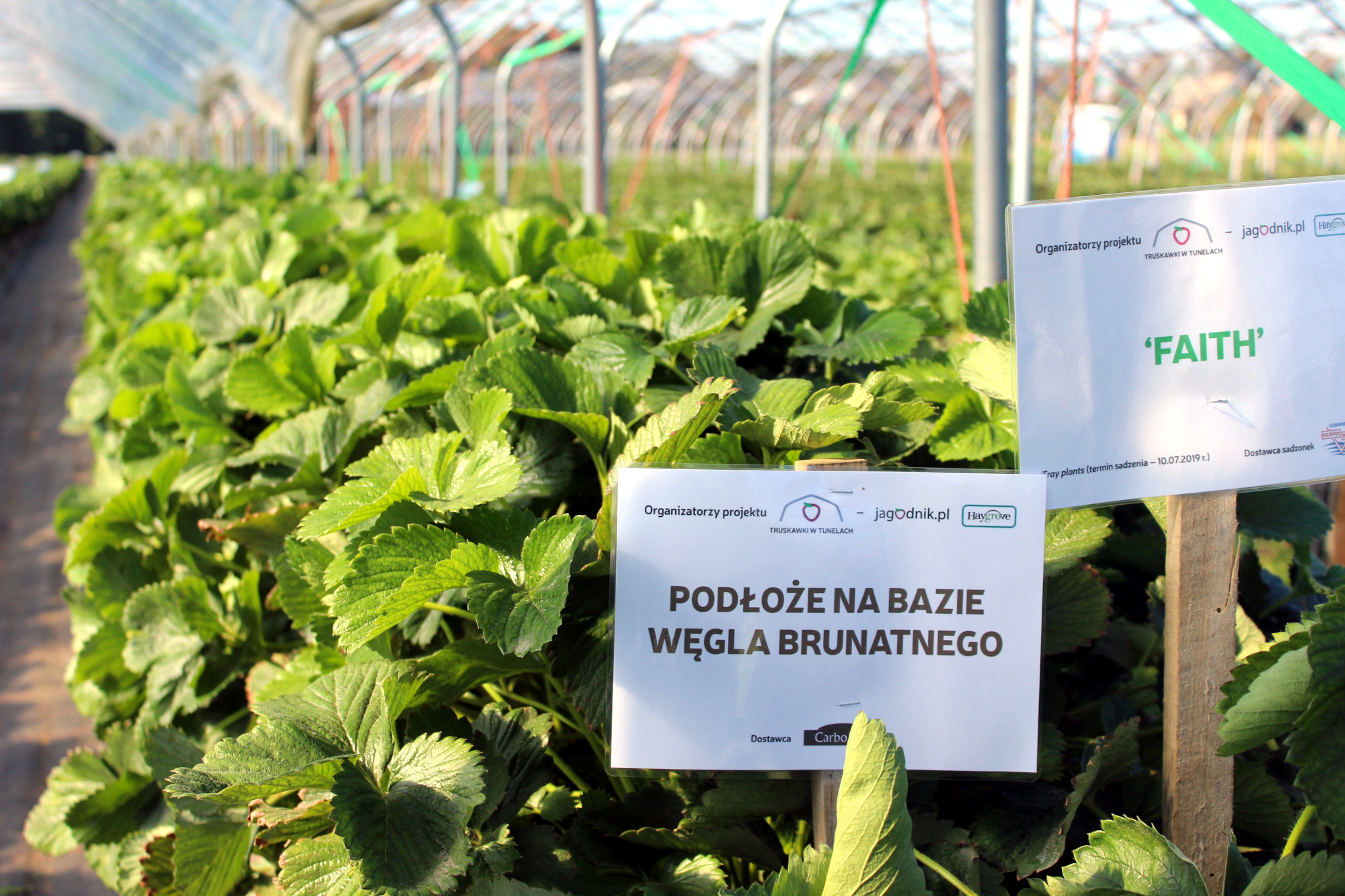Carbomat
Organic substrate

Our organic substrate CARBOMAT proves ideal for soil and soilless cultivation of all plant species. It is composed of properly comminuted, selected and siefted fractions of soft brown coal – lignite. In this way we obtain optimum water and air conditions for individual plant species. Being an abundant source of leonardites – humic substances (humic acids and their salts), active carbon and organic carbon, lignite plays a significant role in maintaining soil fertility and supplying plants with mineral compounds of organic origin. Furthermore, it has an advantageous impact on improvement of physical, physical-chemical and biological properties of soils.
Why lignite?
Lignite has a positive influence on growth, development, yield and health condition of cultivated plants. What is more, it has an indirect and direct influence on the soil environment and biological life that goes on therein. Therefore, in the times of significant deterioration of soil quality and low soil fertility, taking advantage of the potential of lignite as a “fertilizing raw material” constitutes a key issue in the context of plant cultivation and soil condition. Apart from that, lignite may be applied successfully in reclamation of soils contaminated with heavy metals, e.g. in urban areas where improving soil properties might open new perspectives for urban greenery.
Where will you use CARBOMAT?
Currently lignite experiences a true renaissance period in the context of soil fertilization and making of original substrates. It is versatile in its applications due to its condensed organic matter, loose structure of desired fraction, sterility, porosity and durability of microbiological structure. It may be used successfully as independent cultivation substrate both in soilless and in soil cultivation as well as a substrate component with addition of e.g. perlite, peat, coconut and even sand. Lignite is gaining better and better recognition and is a well appreciated biodegradable organic substrate of properties same as organic fertilizer. Comminuted into granulate it will perfectly fertilize the root environment while due to its loose and porous structure it will enable the roots to fully penetrate their life space and ensure oxygen supply from ambient air.
Available types of products
and packaging
Sylwia Gabrysz, tel. +48 506 383 715
Radosław Łaźny, tel. +48 604 337 452
Available packaging
types
Available capacity



Characteristics and properties of lignite as:
 |
|
 |
|
Recommended applications
Pick Your section

